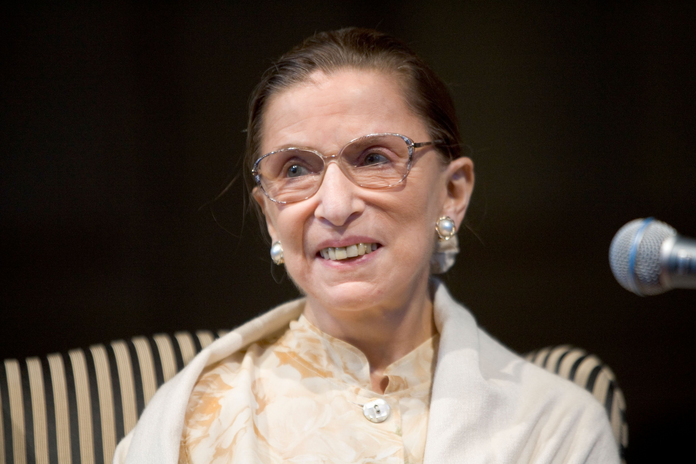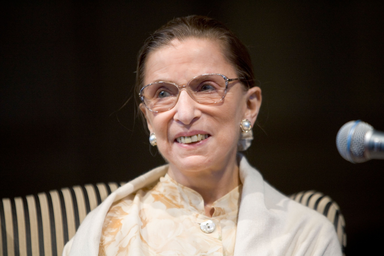Ruth Bader Ginsburg meant so many things to so many people. As a young lawyer, she challenged traditional gender roles by taking on pivotal cases and setting a precedent for many following cases regarding discrimination based on sex. Ginsburg devoted her career to promoting gender equality and continued this mission into her many years as a Justice of the Supreme Court, changing society in ways that still impact American women today. Her dedication is well summarized in one of her well-known quotes: “I ask no favour for my sex; all I ask of our brethren is that they take their feet off our necks”.
Equally impressive is Ginsburg’s extreme tenacity. While in law school, her husband fell ill with cancer and Ginsburg managed to complete her own schoolwork, help her husband with his work, and care for a toddler, all as a young woman in her early twenties. As a Justice of the Supreme Court, she survived cancer twice, never failing to fulfill her duties at work.

One of the many meaningful lessons I’ve learned from Justice Ginsburg is that a force of nature can come in many forms, including an unassuming Jewish woman from New York. Like my family, Ginsburg’s relatives moved to America to escape the brutal antisemitism that infiltrated Eastern Europe. Neither of her parents had the means to attend university and, after her mother’s passing when she was a teenager, Ginsburg became even more driven to accomplish what her mother was unable to. Described as quiet and reserved by her friends, Ginsburg fought her battles not through traditional forcefulness but through carefully constructed words, an admirable work ethic, intelligence and empathy. She understood that yelling only pushed people away and instead educated others, taking on the role of a teacher rather than a bully. Ginsburg’s unending passion for her work, intellectual prowess and quiet strength are perpetually inspiring. As I near my graduation this year, I look to role models like Ginsburg as a guiding light for what I hope to become.
In the Jewish tradition, we honour those who have passed by saying, “may her memory be a blessing”, translated from a Hebrew phrase with another very fitting interpretation:
“May her memory be a revolution”.



